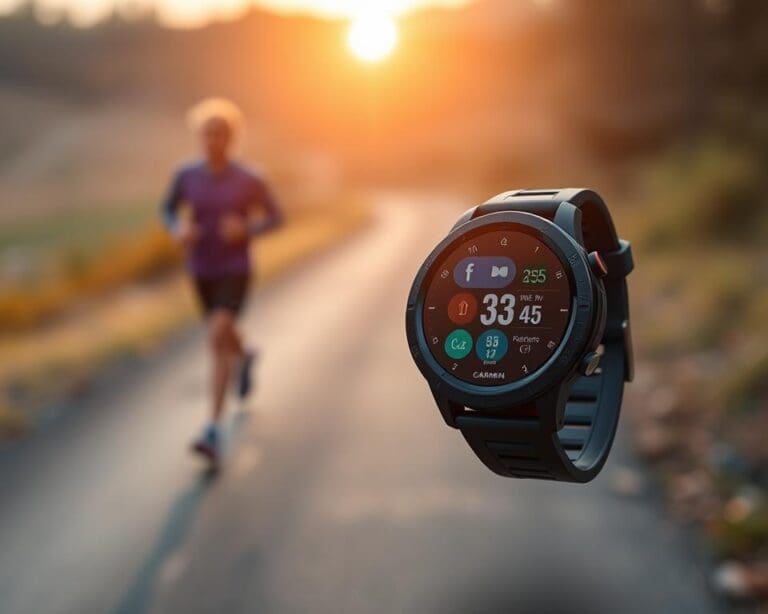Als de maritieme industrie voortdurend evolueert, is het essentieel dat studenten en professionals voorbereid zijn op de toekomstige uitdagingen en mogelijkheden die deze dynamische sector zal bieden. De opleidingen in maritieme technologie spelen een cruciale rol bij het toerusten van de volgende generatie maritieme ingenieurs, ontwerpers en innovators om de scheepsbouwtechnologie, off-shore technologie en duurzame scheepvaart verder te ontwikkelen.
Deze opleidingen bieden een diepgaand inzicht in de nieuwste maritieme innovaties, zoals groene scheepvaart en milieuvriendelijke technologieën, en bereiden studenten voor op een carrière in deze boeiende en snel veranderende wereld. Door een evenwichtig curriculum dat zowel theoretische kennis als praktijkervaring in de scheepsbouw en -reparatie combineert, worden de studenten toegerust met de vaardigheden die nodig zijn om de industrie naar nieuwe hoogten te stuwen.
Key Takeaways
- Opleidingen in maritieme technologie bereiden studenten voor op de toekomst van de maritieme industrie.
- Het curriculum omvat maritieme engineering, duurzame scheepvaartoplossingen en innovaties.
- Studenten krijgen een combinatie van theoretische kennis en praktijkervaring in de scheepsbouw en -reparatie.
- De opleidingen trainen de volgende generatie maritieme ingenieurs, ontwerpers en innovators.
- Afgestudeerden zijn goed voorbereid op een boeiende carrière in deze dynamische sector.
Inleiding tot de maritieme industrie
The maritime industry is a crucial component of the global economy, responsible for facilitating the transportation of goods and resources across vast waterways. At the heart of this dynamic sector lies the role of maritime technology, which has evolved significantly over the years to meet the ever-changing demands of international trade and commerce.
The Role of Maritime Technology in the World Economy
From the development of advanced shipbuilding techniques to the integration of cutting-edge navigation systems, maritime technology has played a pivotal role in shaping the efficiency and sustainability of global supply chains. By enabling the safe and reliable movement of cargo across oceans, this industry has become a vital cog in the wheel of the world economy.
Career Opportunities in the Maritime Sector
- Shipbuilding and ship design
- Marine engineering and naval architecture
- Port operations and logistics management
- Maritime safety and environmental compliance
- Offshore energy and renewable technology development
The maritime sector offers a wide range of career paths for individuals with diverse backgrounds, from zeevaartonderwijs (maritime education) to specialized maritieme ingenieurs (marine engineers) and professionals in the broader maritieme sector. As the industry continues to evolve, the demand for talented and skilled individuals is expected to grow, presenting abundant opportunities for those seeking rewarding and dynamic careers.
| Sector | Growth Potential | Key Skills Required |
|---|---|---|
| Shipbuilding and Design | Moderate | Naval architecture, CAD/CAM, material science |
| Marine Engineering | High | Mechanical, electrical, and electronic engineering |
| Offshore Energy | Significant | Structural engineering, project management, sustainability |
| Logistics and Port Operations | Steady | Supply chain management, data analysis, digital technologies |
As the maritime industry continues to evolve, the demand for skilled professionals in the fields of zeevaartonderwijs, maritieme ingenieurs, and the broader maritieme sector is expected to grow, presenting abundant opportunities for those seeking rewarding and dynamic careers.
Opleidingen in maritieme technologie: Voorbereid op de toekomst
The maritime industry is rapidly evolving, driven by advancements in maritime technology. To keep pace with this dynamic landscape, educational institutions are offering innovative programs that equip students with the necessary skills and knowledge to thrive in the industry’s future.
One such program is the Maritime Technology and Innovation degree, which provides a comprehensive curriculum focusing on the latest developments in maritime engineering, automation, and sustainability. Students enrolled in this program gain a deep understanding of ship design, marine robotics, and environmentally-friendly propulsion systems, preparing them to tackle the industry’s most pressing challenges.
In addition to traditional academic programs, many universities and technical colleges have partnered with leading maritime organizations to offer specialized vorbereid op de toekomst training and certifications. These industry-driven initiatives ensure that students are voorbereid op de toekomst and well-equipped to contribute to the industry’s growth and innovation.
| Program | Focus Area | Certification |
|---|---|---|
| Marine Engineering Technology | Ship propulsion, automation, and maintenance | International Association of Maritime Universities (IAMU) Certification |
| Coastal and Ocean Engineering | Offshore infrastructure, renewable energy, and environmental protection | Professional Engineering (P.Eng.) Certification |
| Sustainable Shipping and Logistics | Green supply chain management, port operations, and intermodal transportation | Green Supply Chain Management (GSCM) Certification |
By investing in these cutting-edge maritieme technologie programs, aspiring professionals can position themselves at the forefront of the maritime industry, ready to tackle the challenges and opportunities of the future.
Maritieme ingenieursopleidingen
In the dynamic maritime industry, skilled maritime engineers play a crucial role in shaping the future of ship design, construction, and offshore technology. Maritime engineering programs equip students with the specialized knowledge and practical skills needed to excel in these highly specialized fields.
Scheepsbouwtechnologie en -ontwerp
Maritime engineering programs focused on ship design and construction cover a wide range of topics, including naval architecture, hydrodynamics, structural engineering, and advanced manufacturing techniques. Students learn to design and develop innovative ship hulls, propulsion systems, and other critical components, ensuring the safety, efficiency, and sustainability of maritime vessels.
Off-shore technologie en constructies
Offshore technology and construction are other key areas of focus within maritime engineering programs. Students explore the unique challenges and opportunities presented by the offshore environment, gaining expertise in platform design, subsea engineering, and renewable energy systems. This prepares them for careers in the rapidly growing offshore industry, which is crucial for meeting the world’s energy and resource demands.
Whether aspiring to work on the cutting edge of ship design and construction or contribute to the development of offshore technologies, maritime engineering programs offer a wealth of opportunities for those passionate about shaping the future of the maritime sector.
Duurzame maritieme oplossingen
In de maritieme industrie is er een toenemende focus op duurzame en milieuvriendelijke oplossingen. Deze sector speelt een cruciale rol in de wereldeconomie, maar heeft ook een aanzienlijke impact op het milieu. Gelukkig zien we steeds meer innovaties op het gebied van duurzame scheepvaart en groene scheepvaart.
Groene scheepvaart en milieuvriendelijke innovaties
Maritieme technologie-opleidingen besteden veel aandacht aan het ontwikkelen van innovatieve maritieme innovatie oplossingen die de ecologische voetafdruk van de scheepvaart verkleinen. Enkele voorbeelden hiervan zijn:
- Hybride en volledig elektrische scheepsaandrijving
- Geavanceerde romp- en scheepsontwerpen die brandstofefficiëntie verbeteren
- Alternatieve brandstoffen zoals waterstof, vloeibaar aardgas en biobrandstoffen
- Geavanceerde emissiebeheersystemen voor schepen
- Technologieën voor het opvangen en recyclen van scheepsafval
| Innovatie | Voordelen | Toepassingsgebied |
|---|---|---|
| Hybride scheepsaandrijving | Brandstofbesparing, lagere emissies | Zowel passagiers- als vrachtschepen |
| Alternatieve brandstoffen | Vermindering van broeikasgasemissies | Vooral geschikt voor lange-afstandsvaartuigen |
| Geavanceerde scheepsontwerpen | Verbeterde hydrodynamica, minder brandstofverbruik | Breed toepasbaar in verschillende scheepstypen |
Deze innovaties tonen aan dat de maritieme sector toonaangevend is op het gebied van duurzame oplossingen. Door voortdurend te investeren in groene scheepvaart en maritieme innovatie wordt de weg geplaveid naar een toekomstbestendige en milieuvriendelijke maritieme industrie.
Maritieme onderzoeks- en ontwikkelingsprogramma’s
The maritime industry is a dynamic and ever-evolving sector, driven by the constant pursuit of innovation and technological advancements. At the heart of this transformation are the maritime research and development programs that are shaping the future of maritime technology.
These programs bring together experts, researchers, and industry leaders to explore cutting-edge solutions, tackle complex challenges, and push the boundaries of what is possible in the maritime realm. From sustainable shipping technologies to advanced off-shore constructions, the scope of these initiatives is as vast as the oceans they aim to conquer.
One such innovative program is the Maritime Research and Innovation initiative, a collaborative effort between leading universities, research institutions, and maritime companies. This program focuses on developing innovative solutions for the efficient and eco-friendly operation of vessels, including advancements in:
- Renewable energy systems for ships
- Intelligent navigation and route optimization
- Autonomous and remote-controlled vessel technologies
Another groundbreaking program is the Offshore Engineering Research and Development Center, which is dedicated to exploring the latest advancements in off-shore technology and construction. This center is at the forefront of developing innovative solutions for:
- Offshore wind turbine foundations
- Underwater robotics for offshore maintenance
- Advanced materials for offshore structures
These maritime research and development programs are not only driving innovation but also shaping the future of the industry, ensuring that the next generation of maritime professionals are equipped with the knowledge and skills to tackle the challenges of tomorrow.
Scheepsbouw en -reparatie
In de dynamische wereld van de maritieme technologie, bieden opleidingen in scheepsbouw en -reparatie studenten waardevolle praktijkervaring en stages. Deze hands-on benaderingen stellen leerlingen in staat om hun theoretische kennis toe te passen in de echte wereld van de scheepsbouwindustrie.
Praktijkervaring en stages in de scheepsbouwindustrie
Maritieme technologie-opleidingen bieden unieke mogelijkheden voor studenten om deel te nemen aan projecten in scheepsbouw en -reparatie. Deze praktische ervaringen geven toekomstige professionals een voorsprong door hen vertrouwd te maken met de nieuwste technieken, technologieën en uitdagingen in deze dynamische sector.
- Deelname aan de bouw en het ontwerp van schepen
- Praktijkgerichte stages bij toonaangevende scheepswerven
- Onderhoud en reparatie van bestaande schepen
- Blootstelling aan geavanceerde maritieme systemen en -apparatuur
Door actief betrokken te zijn bij het scheepsbouw- en reparatieproces, kunnen studenten hun theoretische kennis in de praktijk brengen en de vaardigheden ontwikkelen die nodig zijn om succesvol te zijn in de maritieme industrie.
“Mijn stage bij een vooraanstaande scheepswerf gaf me de kans om te werken aan ultramoderne scheepsbouwtechnologieën. Het was een unieke ervaring die me voorbereidde op mijn carrière in de scheepsbouw.”
Deze waardevolle ervaringen stellen studenten in staat om te groeien als maritieme professionals en zich voor te bereiden op een toekomst in de dynamische, innovatieve wereld van scheepsbouw en -reparatie.
Maritieme bedrijfskunde en logistiek
In de maritieme sector speelt bedrijfskunde en logistiek een cruciale rol. Dit omvat het beheer van maritieme operaties en supply chains, waarbij efficiëntie, kosteneffectiviteit en duurzaamheid sleutelprioriteiten zijn.
Beheer van maritieme operaties en supply chains
Maritieme bedrijfskunde richt zich op het optimaliseren van processen en besluitvorming binnen maritieme organisaties. Dit omvat diverse aspecten, zoals:
- Havenlogistiek en terminal management
- Scheepvaartplanning en -beheer
- Intermodale transportsystemen
- Risicobeheer en veiligheid
- Duurzaamheidsstrategie en milieu-impact
Maritieme logistiek gaat over het efficiënt en effectief beheren van goederenstromen en supply chains binnen de maritieme industrie. Dit omvat onder andere:
- Optimalisatie van vrachtvervoer over zee
- Coördinatie van havenbewerkingen
- Integratie van multimodale transportsystemen
- Implementatie van geavanceerde technologieën, zoals blockchain en AI
- Ontwikkeling van duurzame logistieke oplossingen
| Kerncompetenties in maritieme bedrijfskunde | Kerncompetenties in maritieme logistiek |
|---|---|
|
|
Door de combinatie van maritieme bedrijfskunde en logistiek kunnen ondernemingen in de maritieme sector hun concurrentiepositie versterken, de operationele efficiëntie verhogen en duurzame oplossingen implementeren.
Internationale samenwerking en uitwisselingen
In de maritieme technologie-industrie speelt internationale samenwerking een cruciale rol. Door middel van grensoverschrijdende partnerschappen en uitwisselingsprogramma’s kunnen studenten en professionals uit de hele wereld hun kennis en vaardigheden verrijken.
Deze mondiale connecties bieden tal van voordelen. Studenten kunnen deelnemen aan uitwisselingsstages bij toonaangevende maritieme bedrijven in het buitenland, waardoor ze waardevolle praktijkervaring opdoen en inzicht krijgen in verschillende bedrijfsculturen. Tegelijkertijd kunnen experts hun expertise delen en samenwerken aan innovatieve maritieme projecten.
- Uitwisselingsstages bij internationale maritieme bedrijven
- Gezamenlijke onderzoeks- en ontwikkelingsprojecten
- Internationale conferenties en symposia
- Samenwerking tussen universiteiten en opleidingsinstituten
Deze mondiale connecties versterken niet alleen de internationale samenwerking, maar dragen ook bij aan de maritieme uitwisselingen die cruciaal zijn voor de vooruitgang van deze dynamische sector. Door kennis, ideeën en best practices te delen, kunnen professionals en organisaties wereldwijd van elkaar leren en gezamenlijk oplossingen ontwikkelen voor de uitdagingen van morgen.
“Internationale samenwerking is de sleutel tot vooruitgang in de maritieme technologie. Door over grenzen heen kennis en expertise uit te wisselen, kunnen we innovatieve oplossingen creëren die de hele wereld ten goede komen.”
Conclusion
As we’ve explored throughout this article, the field of maritime technology is evolving rapidly, presenting both challenges and exciting opportunities for those seeking to enter this dynamic industry. By pursuing educational programs focused on maritime engineering, sustainable solutions, and business operations, students can position themselves as the innovative leaders who will shape the future of maritime technology.
The key to success lies in being prepared for the future. Through rigorous coursework, hands-on experience, and a commitment to lifelong learning, the next generation of maritime professionals will be equipped to navigate the complexities of this industry and drive forward-thinking maritime technology initiatives. By embracing the latest advancements in areas like green shipping and off-shore construction, these individuals will play a crucial role in ensuring the long-term sustainability and prosperity of the maritime sector.
Whether your passion lies in engineering, business, or research and development, the educational opportunities outlined in this article provide a solid foundation for a rewarding career in the world of maritime technology. By harnessing the power of innovation and collaboration, the maritime industry can continue to thrive and positively impact the global economy for years to come.












